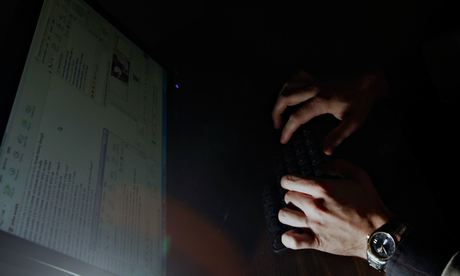
The live online streaming of real-time child sexual abuse is becoming an "emerging trend" that will grow over the next three years, according to Britain's organised crime fighters.
The National Crime Agency says that while the scale of existing forms of production of indecent images of children is likely to remain stable over the next year to three years, live streaming and paedophiles' use of the "hidden web" – sites beyond the reach of search engines – are likely to rise sharply.
The NCA says paedophiles are using the increasing availability of the internet in developing countries to live-stream the abuse of children to paying customers across the world.
In January the NCA announced that 17 British men were among those arrested in an international police operation that broke up a paedophile ring that streamed live child abuse from the Philippines. Three other inquiries are under way into men who pay to see abuse via webcams with 139 Britons among 733 suspects.
"Extreme poverty, the increasing availability of high-speed internet and the existence of a vast and comparatively wealthy overseas customer base has led to organised crime groups exploiting children for financial gain," said the NCA.
The NCA lists live online streaming of child abuse with the supply of heroin and new "legal highs" and the criminal exploitation of the legal trade in guns as among the fastest growing organised crime threats facing Britain over the next one to three years.
The agency's first national threat assessment estimates there are 36,600 criminals involved in an about 5,300 organised groups in Britain involved in child sex abuse, cyber-fraud, the trade in drugs and guns and people trafficking.
The agency says almost half of organised crime groups are involved in some way in the drug trade with 18 to 23 tonnes of heroin and 30 tonnes of cocaine imported annually to Britain, despite falling heroin and crack use.
The threat assessment says criminals will increasingly exploit legitimate channels for bringing guns into Britain to get their hands on weapons. "There is also concern that weapons, whether from illegal or illegitimate sources, might find their way into the hands of extremists," it adds.
The broad ranging national crime threat assessment warns of more cyber-attacks on UK computer networks, including on government websites as more public service such as tax collection go online, as well as denial of service attacks and harvesting of confidential data against commercial business systems.
Most of the heroin consumed in Britain originates in Afghanistan, where opium poppy production is once again booming, but increasing amounts are coming via Turkey rather than Pakistan and is likely to increase.
The National Crime Agency forecasts that the dynamic nature of the chemistry of new psychoactive substances or "legal highs" will also remain a problem.
The threat assessment was published as the Home Office rejected a claim from MPs that Britain was in the grip of "an epidemic" of "legal highs" and denied their response to the problem was "sluggish".
The official Home Office response to a critical report from the Commons home affairs select committee said it did not underestimate the complexity of the challenge posed by the new substances.
"The advent of new psychoactive substances has marked a shift from the long and stable period when years would elapse between entirely new drugs appearing on the market," it says.
The assessment follows a warning last week by the drugs minister, Norman Baker, to the organisers of this summer's music and dance festivals asking them to adopt a "no legal highs" policy and making it a condition of entry to their sites. He also asked them to ban the sale of nitrous oxide or laughing gas at their events.
Forensic scientists are to set up on-site analytical laboratories at some of the bigger festivals this summer to provide the police and festival organisers with real-time intelligence of the illicit drugs in circulation. Their findings are also used to issue public warnings of particularly harmful substances.

